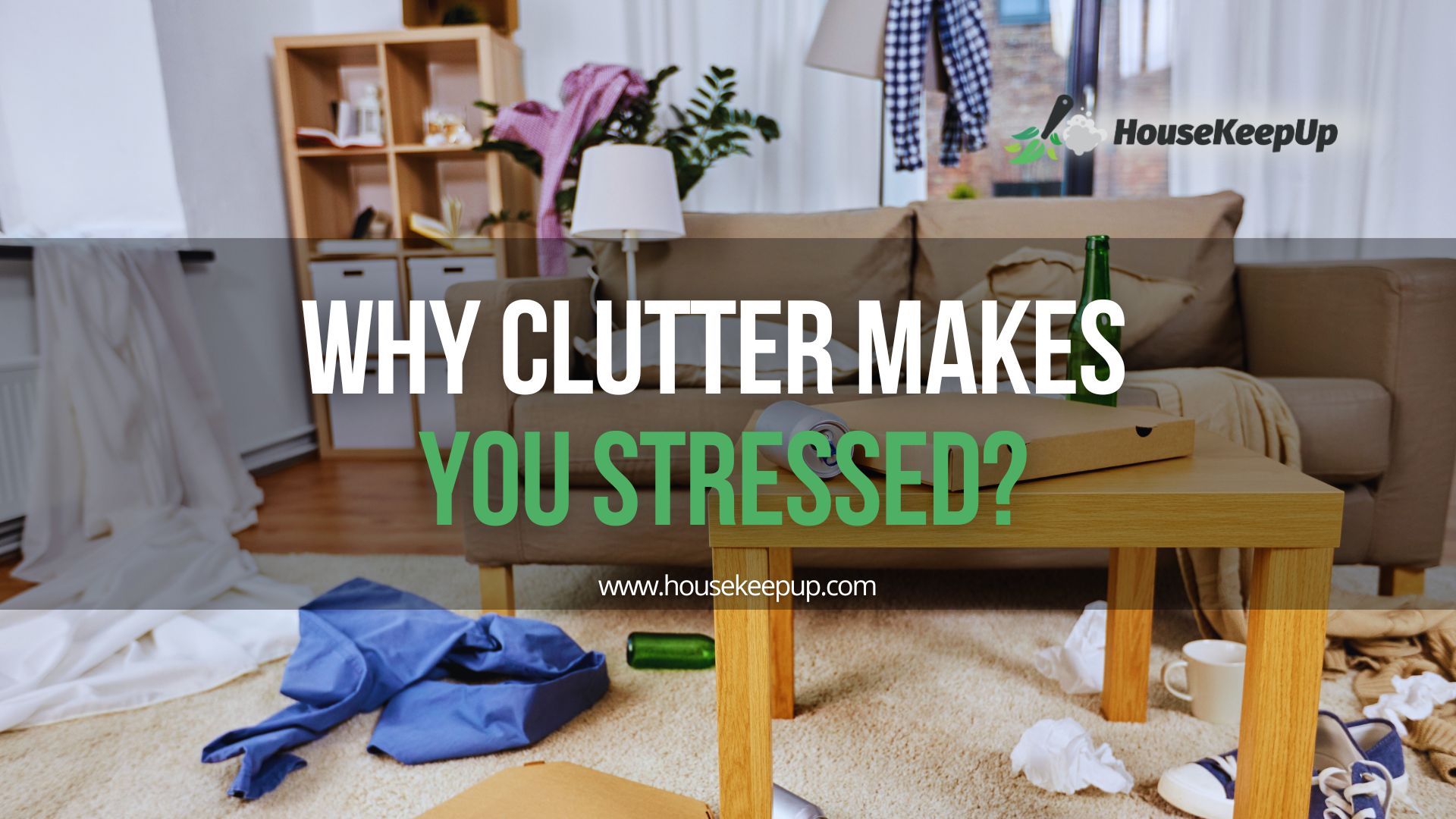
Listen, we’ve all been there. You walk into a room, see the pile of stuff everywhere, and instantly feel your stress levels shoot through the roof. Trust me, it’s not just you – that feeling is super real, and there’s actual science behind why our messy spaces mess with our heads. Let’s talk about why this happens and what we can actually do about it (no fancy organizing systems required, I promise!).
The Science Behind Clutter Stress
Your Brain on Clutter
Our brains are constantly processing our environment, even when we’re not consciously aware of it. When surrounded by clutter, your mind is forced to process multiple visual stimuli simultaneously – imagine trying to have a conversation while a dozen people are talking around you. This cognitive overload can leave you feeling mentally exhausted before you’ve even started your day.
Decision Fatigue: The Hidden Energy Drain
Every item in your cluttered space represents a decision waiting to be made. Should you keep that magazine from three months ago? Where should you store those holiday decorations? While each decision might seem small, they accumulate throughout the day, depleting your mental energy and making it harder to focus on what really matters.

The Real-World Impact
Time and Productivity
Here’s a sobering statistic: the average person spends 2.5 days per year searching for misplaced items. That’s time you could spend pursuing hobbies, connecting with loved ones, or simply relaxing. In our busy lives, can we really afford to lose this much time to disorganization?
The Financial Side
Let’s talk about the elephant in the room – clutter costs money. From buying duplicates of items you can’t find to late fees on bills lost in paper piles, disorganization can have a real impact on your wallet. Think of organization as an investment in both your mental health and financial well-being.

Your Practical Path to Progress
1. Start With Intention
Instead of diving into a massive organizing project, begin with purpose:
- Choose one area that impacts your daily life the most
- Set aside 20 minutes (yes, that’s all you need to start)
- Focus on progress, not perfection
- Document your “before and after” for motivation
2. The Strategic Sort
Implement a systematic approach to decluttering:
- Keep: Items you use regularly and truly need
- Relocate: Things that belong in another space
- Remove: Items to donate, sell, or discard Pro tip: If you haven’t used something in the past year and it doesn’t hold significant sentimental value, it’s probably time to let it go.
3. Create Systems That Stick
The key to maintaining a clutter-free space is having systems that work with your lifestyle, not against it:
- Designate specific homes for everyday items
- Create easy-to-maintain organization systems
- Implement the “one-in-one-out” rule
- Set up donation stations in key areas of your home
The Psychological Journey
Breaking Emotional Attachments
Our relationship with possessions is often complex. Before letting go of items, ask yourself:
- Does this item serve my present life?
- Am I keeping this out of obligation or genuine desire?
- Could this item better serve someone else?
- Would a photo preserve the memory just as effectively?
Building New Habits
Creating lasting change requires a shift in both mindset and behavior:
- Practice mindful purchasing
- Develop regular maintenance routines
- Focus on experiences over possessions
- Celebrate small victories along the way

Maintaining Your Progress
The Weekly Reset
Dedicate 30 minutes each week to:
- Quick surface scans
- Return items to their designated spaces
- Process incoming items
- Plan for the week ahead
Seasonal Check-Ins
Four times a year, perform a deeper evaluation:
- Rotate seasonal items
- Assess organizational systems
- Update storage solutions as needed
- Reflect on what’s working and what isn’t
What are The Benefits of a Clutter-Free Life?
As you reduce physical clutter, you’re likely to experience:
- Improved focus and concentration
- Better sleep quality
- Reduced anxiety levels
- Enhanced creativity
- More effective decision-making
- Increased productivity
Remember, the goal isn’t to create a perfectly minimal space – it’s to design an environment that supports your well-being and helps you thrive. Some days will be messier than others, and that’s perfectly okay. What matters is creating sustainable habits that work for your lifestyle.





0 Comments